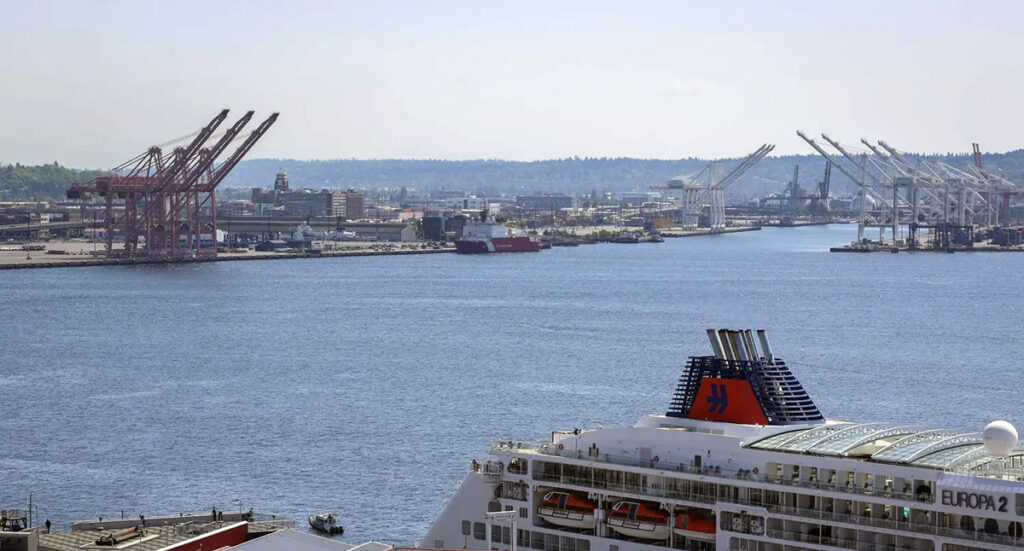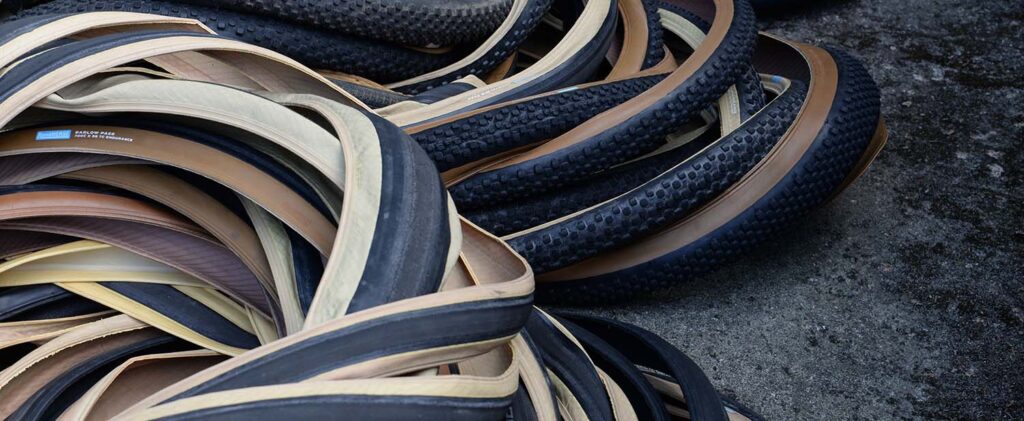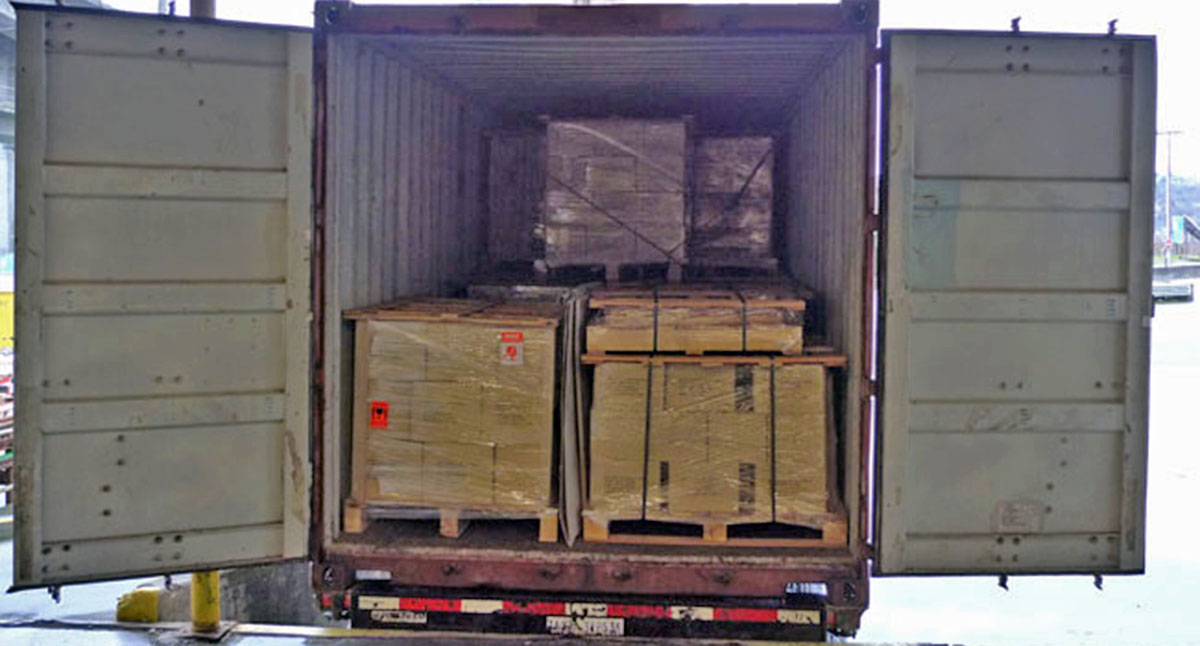Tariffs: The first 30 days
Our post about the new tariffs and what they mean for the bike industry has been our most popular article—ever. In fact, several bike industry contacts have told me that the article has been required reading for their employees. It’s clear that there’s a need for information on this topic, even though we’d much prefer to talk about great rides or how to develop better bike components.
It’s been 30 days since the latest round of import taxes went into effect. Initially, the rates were set on a country-by-country basis. A few hours after the new rates came into effect, the U.S. government changed course and paused the country-specific rates for 90 days. Instead we got a universal tariff of 10%, plus higher rates on China, Canada and Mexico, as well as on cars and car parts, plus an additional 25% tariff on anything made from steel or aluminum. These new tariffs are in addition to existing tariffs, which for bicycles range from 0 to 11%, depending on the product category.
If all this seems confusing, you aren’t the only one. When I asked our customs broker for clarification on some aspects of the new import taxes, her answer was: “We are unsure at this time.”
The 30-day mark of the new policies is a good time to step back and take stock. What is happening in the bike industry, and how will it affect you, as a cyclist and customer of Rene Herse Cycles?
What are tariffs
Tariffs are taxes paid on imports. They are essentially the same as a sales tax, which a customer pays when they buy something. Tariffs are taxes that companies or individuals pay when they import something.
U.S. presidents do not have the authority to set tariffs (or other taxes) on their own. However, presidents can regulate imports during a national emergency. In the past, this authority has been used to levy sanctions and prohibit American companies from doing business in certain countries. The administration has said that “unfair foreign trade and economic practices have created a national emergency.”
Effects of uncertainty
The administration has said that the tariffs are intended to be temporary, as a tool to extract concessions from other countries. This means that much of the U.S. economy is in limbo right now, uncertain what the future will bring. Let’s look at a few companies to see how this has already affected the bike industry:
- Price increases: Trek, Specialized, State Bicycle Co. are among those who have increased their dealer prices. Specialized and State now charge dealers tariff surcharges of 10 and 8%, respectively.
- Import stops: Many companies have stopped imports from China (which now carry a minimum tariff of 145%). For example, Parlee imports some of their carbon frames from China. They’ve stopped these imports.
This makes sense: Imagine you import a container of frames from China and pay 2.5 times as much as you usually would. To avoid making a loss, you’ll have to more than double your prices overnight. Few customers will want to buy your frames at these new prices—especially when other companies still offer frames that were imported before the tariffs took effect, at ‘pre-tariff’ prices. Making matters worse, the tariffs may be rescinded at any moment. Then your competitors will bring in their frames with lower tariffs (or none at all), and you have a warehouse full of frames that you can’t even sell at your cost. - Difficulties for American factories that rely on imports: American companies that rely on imported parts are facing difficulties. Kent Bicycles employs 100 people who assemble bikes at a factory in South Carolina. The company uses imported components, mostly from China. (There are no American makers of components for production bikes.) Like Parlee, Kent has suspended imports from China. Kent recently announced that, when their stocks of components run out later this year, they will suspend production in South Carolina, unless there is a change in the tariff situation.
- Difficulties for Made-in-USA makers: Bike shops are rushing to stock up on imported bikes and parts before the tariffs go into effect. With cash flow limited, the shops have essentially stopped purchasing American-made products. Oveja Negra, which makes high-end bikepacking bags in Colorado, recently had to lay off half their workforce—7 employees—because of a lack of orders. Oveja Negra’s owner Lane Willson explained: “We figured out U.S. manufacturing, and we figured out how to take care of our people, and it came crashing down.” International customers have also canceled orders, as “they’ve opted to not buy anything from the U.S. at this time.”
- Exchange rate: The U.S. dollar has lost about 10% of its value as investors from all over the world are fleeing American assets. By itself, this has increased the cost of importing products by 10%. The future of exchange rates is always difficult to predict, but most observers expect a continuing ‘free-fall’ of the dollar.
- No on-shoring: Because of the uncertainty, there have been almost zero efforts to bring manufacturing to the U.S. Nobody knows whether the tariffs are here to stay or going away, which makes it impossible to decide whether specific projects for U.S. manufacturing will be cost-effective. In fact, the current situation is especially punishing for manufacturers who produce their products domestically: It is much easier to cancel orders from overseas suppliers than to idle your own factory.

What’s next
Thirty days is a relatively short time in economic terms. The consequences of the new policies are only starting to trickle through the supply chain. What to expect in the future?
- Supply shortages: As companies cancel orders until the tariff situation settles down, we can expect shortages. During Covid, factories in a few countries were shut down for a few weeks, and widespread chaos resulted. The current disruptions appear to be larger in scale than those during Covid. The port here in Seattle has been empty for weeks (above). All those ‘missing’ ships usually carry products—including bike parts—that are not going to be available.
- Companies abandoning the U.S. market: Some companies have started to abandon the U.S. market. Rotor, the Spanish component maker, recently announced that they are closing their U.S. office after ten years in business, citing “ongoing tariff insecurity.” If this insecurity turns into permanent higher prices (see below), more brands may focus their activities on other markets.
- Price increases: Compared to two months ago, the price of imports from Europe, Japan or Taiwan has increased by 20%, due to the first volley of tariffs (10%) and the precipitous drop of the U.S. dollar (10%). Once the country-specific import taxes are implemented in early July, the price increase will amount to 30% (Europe), 34% (Japan) or 44% (Taiwan), assuming the dollar remains stable at its current value. Those price increases will be passed along to end customers once existing stocks are replaced by new deliveries that are subject to the tariffs.
- The price of chaos: The shortages and resulting inflation of Covid have taught us that even short-term disruptions can have lasting effects. Even if the new tariffs are rescinded tomorrow, the damage will not be undone quickly. All year long, import costs have been much higher than usual.
Shipping rates, like airplane tickets, are priced based on demand. As companies have rushed to fill their warehouses before the tariffs were announced, shipping rates have been extremely high. (Imagine flying somewhere the weekend before Thanksgiving.)
The new tariffs on aluminum and steel were introduced without a plan for implementation, resulting in huge backlogs as U.S. Customs and Border Protection tried to figure out what to charge for each shipment. (Existing tariff classifications did not mention materials except in special cases.) This backlog affects all shipments, which are processed on a first-come first-served basis. These delays are very costly: Shipments that aren’t picked up at the port are assessed expensive storage fees. Yet the importer cannot pick up their shipment until it has cleared customs. (We recently were billed $ 900 for a few pallets that didn’t clear customs for a week.) These extra costs already caused an upward pressure on prices before the new tariffs were announced. That leaves little room to absorb the increased cost of the tariffs without increasing prices significantly. - U.S. companies going out of business: Are we as customers willing to pay prices that are 30 or 40% more than in the past? Probably in some cases, where products are essential to our riding experience. (We won’t stop buying chains and brake pads!) In other cases, customers may balk at the new prices, and companies may be forced out of business, especially at the high end, where profit margins are notoriously small.

What does all this mean for Rene Herse Cycles?
First, we are not going out of business. Prices will increase—some already have—as we receive new shipments at higher cost. Fortunately, we have—like many others—have stocked up on our mainstay products in anticipation of these tariffs, so tires, handlebars and cranks are still available at the old prices—for now.
We’ve halted shipments of a few products that just don’t make sense to restock at the current higher prices. However, we consider most of our components necessities for our style of riding, and we are committed to keeping everything you need in stock.
What does that mean in practice? For example, we’ll try to keep each tire size and tread pattern in stock, but we may not have every casing and/or color. We’ll also streamline our product line a bit. For example, the 650B x 38 mm Loup Loup Pass is a legacy tire, made for the earliest 650B bikes that were built around this size. When supplies run out, we’ll discontinue the Standard casing for now, and only keep the Extralight in stock. Other Standard casings may also be unavailable at times, since it doesn’t make sense to produce and import them for models where we have Extralight and Endurance casings in stock.
Unless the situation changes, it may not make sense to import Berthoud saddles any longer—if you’ve been eyeing a Berthoud saddle, get yours while stocks last. We will continue to stock spare parts for these saddles—our promise to stand behind everything we sell hasn’t changed—but we may offer spare parts only to customers who originally bought their saddles from us. We’re also looking at options to reduce our overhead costs further, so we won’t have to pass along the full cost increases to our customers.

Our Spirits will not be broken
Sometimes, it’s easy to be discouraged by the endless flood of news. By riding our bikes, by enjoying time with friends, by tuning out the news except to stay informed, we can keep our sanity—and gather strength to help make the world a better place. Even in challenging times, we won’t give up hope, and our spirits will not be broken.
More Information:
- Our original post about the new tariffs and why so many bike parts are imported.



